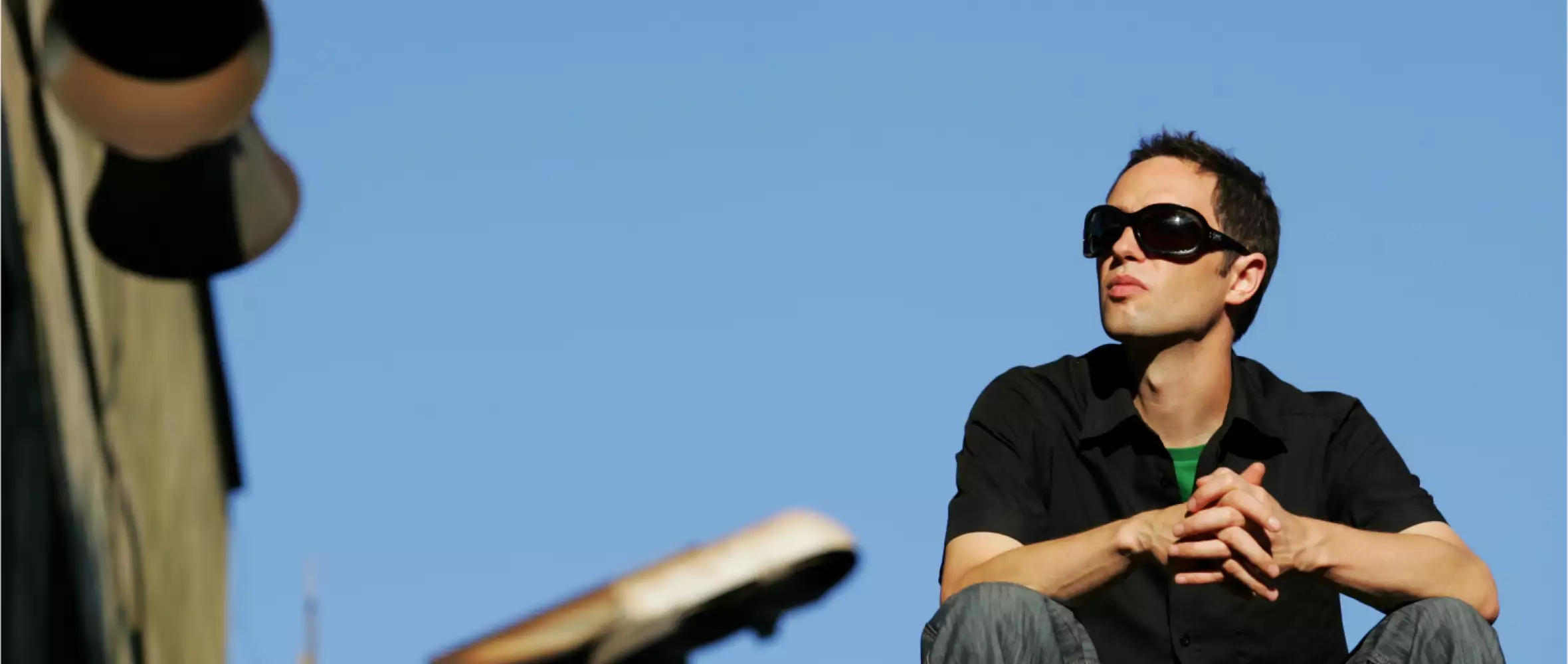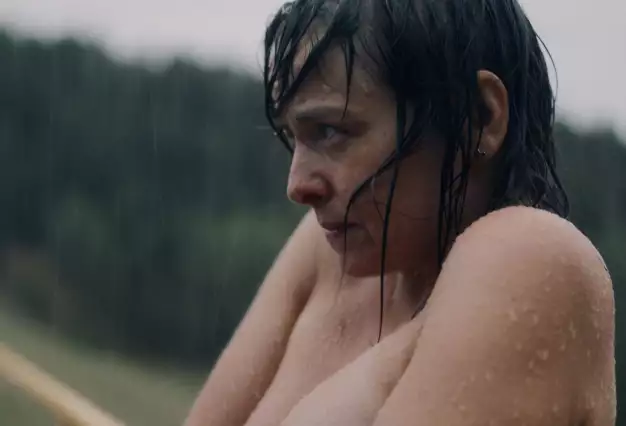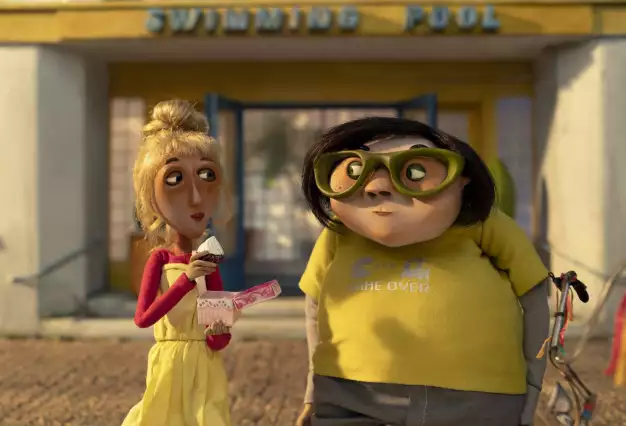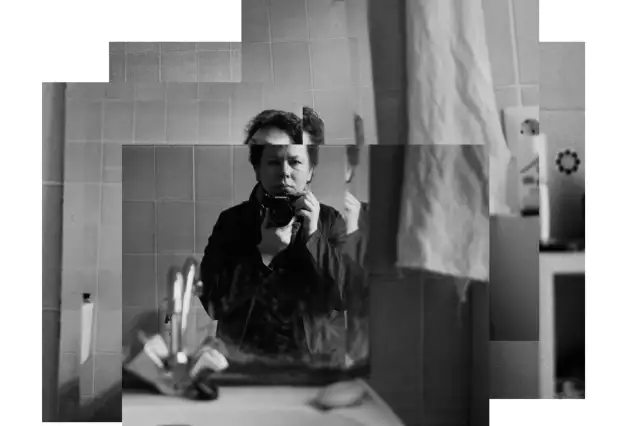
15 November 2020
Music should be the viewer’s emotional guide
Music should be the viewer’s emotional guide

If Jan P. Muchow (b. 1971) wasn’t making his living composing and playing music, he would probably be a professional footballer. In scoring films, too, he considers himself a team player. His current projects include the sports biopic Zatopek, which he and director David Ondříček originally conceived in terms of a Rocky-esque outsider’s story.
written by Vojtěch Rynda for CZECH FILM / Fall 2020
How did you get into film music composition?
People working in film liked the kind of music I was making with the band Ecstasy of Saint Theresa and wanted something similar for their projects.
You’ve been composing the music for David Ondříček’s films for a quarter of a century now. How do you describe your collaboration?
As interesting and enriching. Were it not for David’s confidence in me, my professional journey would have been very different. Maybe his would, too.
Your latest film together is Zatopek. You came to Ondříček with the story of the Czech Olympic athlete in 2007. What was your starting point in taking on the score?
I started working on the music for Zatopek together with Beata Hlavenková. The process got complicated though because of the situation with the pandemic, so we agreed that Beata would finish the film on her own. After working on the project for 13 years, I was a bit burnt out.
How do you look back on your work on the thriller In the Shadow, of which Ondříček re-shot about 80%? That must have affected the score, too.
When my colleague Michal Novinski and I learned that the film was being cut again, it was a pretty unpleasant moment. The film was completed, the score composed, recorded, and mixed. Luckily, the new version really was better, so re-doing it went pretty well. But it meant a lot of extra work, because the new version had a different dynamic and narrative style, so our original music had a different feel.
What do you prefer: to compose on the basis of a screenplay or of the footage?
I prefer to work with the final cut. Of course, there are scenes for which I need to compose and record something in advance, when there’s dancing in the scene, for example, or a concert. But wherever possible I work with the final product.
You have also collaborated regularly with the director Jiří Vejdělek. How did that creative partnership come about?
To be honest, I can’t remember, but I’m very glad I had the opportunity. We first worked together on the film Václav and I guess Jiří was happy with that because afterward I worked with him on the series First Step and the films Women in Temptation, Men in Hope, and Patrimony. Jirka tells a story through images in a skillful and accessible way, he has no problem portraying the development of a character over several years in the space of two minutes on the screen so that it looks good, there’s not a lot of yapping and everything is clear and credible.
You also compose incidental music and music for commercials, you play in several bands, you work as a producer... What percentage of your work is taken up by film music?
It depends. Right now, it’s a very high percentage. I’ve been working almost exclusively on films since last autumn and haven’t had time for other activities. But after five films and a series like the Norwegian-Czech coproduction Dragon Girl and Tomáš Luňák’s documentary 60xZlín, about the Zlín Film Festival, I’ll get back in October to music production for a while. I have a further three films coming up in 2021, among them Dial W for Murder by Polish producer and director Piotr Mularuk.
How does the work on the various projects differ? Is it possible to say that multiple collaborations with a certain director end up being similar?
The biggest differences tend to be between theatre, TV series, and film. In the theatre, music gets the most space during set changes, that is when there are no actors on stage and no one’s talking. With series, you often have to compose and record a “library of musical motifs” before you can see the final version of even one episode. Fiction films, documentaries, and commercials are by their nature closest to my style of work. Recurring collaborations tend to be similar in the form of communication, they’re more intensive, and I think they usually get better results.
In one interview you said: “My one ambition is to tell a film’s story emotionally, aid the director in their vision, and serve the whole.” As the composer of the film’s score, do you try to avoid drawing attention to yourself and be “invisible”?
You don’t have to be invisible, but you shouldn’t be dominant in places where it’s not desirable. Often in film, silence can be more unbearable than the loudest screeching. Likewise, music can give the actors the best possible space for a scene. The music doesn’t have to show what the viewer can see anyway, but it should guide them in what they take from the screen emotionally.
For the film Václav, you used the sounds of glass as a motif, in Ondříček’s Grandhotel it was the sound of wind... Do you often begin composing with a “key sound”? Do you have a set process that you stick to in your work?
There are stories where I think it’s important to look for a core sound or instrument and it helps to find the unique sound for the project. But if I tried to use, say, derailleur gears in the music for the cycling comedy Bikers, it would probably make you cringe. So, I don’t have a set process, it usually varies from case to case. Where things start to become the same is at the recording and mixing stage. There I tend to work with a regular team.
You consider yourself a “team player”. Are there boundaries to your work, though, where you don’t want the director butting in?
In filmmaking, every component has to be subordinated to the whole, that is, to the director’s vision. I feel that it is my job to put my talent at the service of that vision. There’s no room for my ego in that. When I want to do things my way, I do so in projects where the vision is my own and I’m in a position where I am in charge of the project.
Do you have a preferred genre as a composer?
My favorite genre is a good film. A composer’s contribution to the whole unfortunately won’t turn a poor film into Marketa Lazarová. As far as genres are concerned, my experience is that comedy is a lot harder than, say, thrillers. With comedy, you’re always only a millimeter away from parody.
Do you listen to film music even when you’re not watching movies?
I like to, but mostly older stuff. Like everyone, I guess, I love Bernard Herrmann, so I often listen to music from Vertigo or Taxi Driver. And then of course Henry Mancini – when I got married it was to his theme from the Pink Panther. Thanks to the Bond films I love Shirley Bassey. There are few better albums for a Saturday morning than her The Love Album.
In recent years you’ve also written the scores for lightweight comedies like The Grapes 3 or Bikers. Are you happy to work on more commercial films, lacking artistic ambitions?
These kinds of projects are honest about their ambitions, they don’t pretend to be artistic. They try to be a quality film product with box-office potential and I think they show a very good standard of filmmaking. Indiana Jones isn’t Schindler’s List and it would never occur to me that John Williams shouldn’t be doing it.
Do you have a professional bias when you’re watching movies, deliberately paying special attention to the music?
I don’t deliberately pay more attention to the music than other elements of a film, but it does sometimes happen. Unfortunately.




